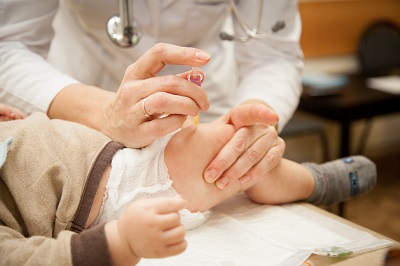
The Technical Network for Strengthening Immunization Services
We are a global network of immunization professionals committed to strengthening immunization services by building relationships, sharing knowledge, coordinating activities, and aligning priorities and goals. Learn More.
Looking for an immunization resource?
Our Knowledge Hub, built and curated by TechNet members, contains thousands of key immunization resources from around the world.
 Childhood vaccination rates in Armenia are high. Yet, anecdotal evidence suggests that some health workers may advise against vaccination. The extent and reasons behind this are unknown. This study used the World Health Organization’s Tailoring Immunization Programmes approach to investigate medical specialists’ vaccination practices.
Childhood vaccination rates in Armenia are high. Yet, anecdotal evidence suggests that some health workers may advise against vaccination. The extent and reasons behind this are unknown. This study used the World Health Organization’s Tailoring Immunization Programmes approach to investigate medical specialists’ vaccination practices.
The study was conducted via face-to-face interviews with 30 medical specialists (paediatricians, immunologists, neonatologists, neurologists, gynaecologists). The interviews explored their vaccination practices (recommending/administering), knowledge, attitudes and confidence. Data were analysed using the Framework approach and COM (Capability, Opportunity, Motivation) factors.
Findings
The research demonstrated that multiple barriers and drivers to positive vaccination practices were evident, with differences between specialists administering/not administering vaccinations. Medical specialists were routinely consulted by parents about vaccination and engaged in conversations, even if they did not administer vaccinations and lacked expertise. Vaccination recommendation was “selective” and influenced by doctors’ own vaccine hesitancy. In fact, it was reported that doctors administering vaccination may have used false contraindications to postpone vaccination.
Capability
Drivers were knowledge of vaccination, vaccines, and vaccine-preventable diseases; with awareness and use of protocols for adverse events and contraindications (those with a vaccination role). Barriers were a lack of a detailed understanding of vaccination, vaccines, and vaccine-preventable diseases, especially amongst neonatologists and gynaecologists, and for HPV. Poor knowledge of adverse events and mixed knowledge of contraindications was evident, as was low confidence through conversations with parents declining vaccination.
Opportunity
Drivers were using “official" guidance, professional information and feeling protected by the Government of Armenia should an adverse event occur. Conversely, barriers were a reliance on media/social media without considering credibility, peers not recommending vaccination, increasing parent demands and not feeling protected by the Government.
Motivation
Drivers were seeing vaccination as a responsibility (those who administer vaccinations); and generally supporting vaccination. Barriers were vaccine hesitancy, some anti-vaccination sentiments amongst neonatologists and gynaecologists and not seeing vaccination as their role (those who do not administer vaccinations).
Conclusions
Applying a theory-informed approach allowed us to identify critical issues and possible solutions. High vaccination coverage may disguise underlying issues, e.g., false contraindications. We addressed gaps in the literature, with our geographical focus and study of medical specialists advising parents on vaccination, a widely used practice in this sub-region.
Link to publication: https://bmcpediatr.biomedcentral.com/articles/10.1186/s12887-022-03687-3
Article author: Heather Saul, WHO
Our community, our knowledge
6156 members
TechNet members are immunization professionals working to improve immunization services in every country and at all levels from global policy formulation and national programme management all the way to service delivery at subnational levels.
- Connect with each other and make new contacts
- Ask questions, provide answers, and share knowledge in our forum
- Join specialist groups (communities of practice)
- Track upcoming events, such as webinars, training opportunities and global events
- Browse key publications on Hot Topics curated by global experts
- Search for guidance in our Knowledge Hub

Our Partners
We are proud to work with many organizations and initiatives across the world in our efforts to help strengthen immunization services. We support the work of all immunization professionals, from both the public and private sector, from governments and international organizations to NGOs, academic institutions, companies and manufacturers. TechNet is a member of two global immunization partnerships:
Gavi Alliance’s immunization Supply Chain Steering Committee (iSC2)



Partnership of Immunization Networks

